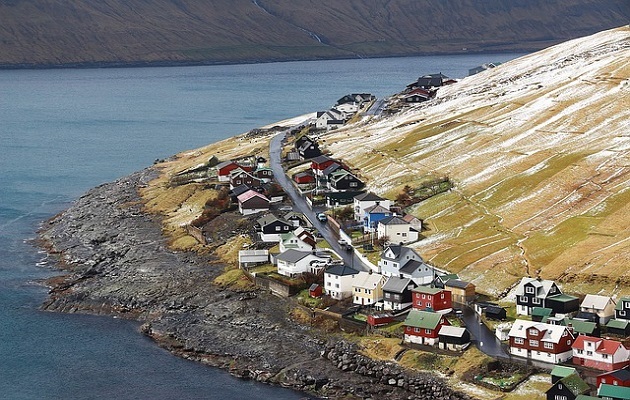The self-determination of the Faroe Islands has not sparked a “heated debate”, Danish evangelicals say
Nearly 50,000 people live in the Faroe Islands, an archipelago of 18 islands 990 kilometres away from Denmark.
COPENHAGEN · 09 MAY 2018 · 12:05 CET

Nearly 50,000 people live in the Faroe Islands, an archipelago of 18 islands located between the United Kingdom and Iceland.
The territory, 990 kilometres away from Denmark’s mainland, is dependent on the Danish central government but it is highly autonomous. The Faroe Islands, for instance, decided not to enter the European Union (in contrast to Denmark), but to be part of the European Economic Area.
In 2005, Denmark granted the Islands the status of nation and the capacity of starting their own international relations. Back in 1946, a majority had voted for independence in a referendum that was not recognised by the Danish Crown.
“The relationship between the Faroe Islands and Denmark is still fairly strong”, says Thomas Bjerg Mikkelsen, the Director of the Danish Evangelical Alliance (Evangelisk Alliance). Nevertheless, “a growing part of the Faroe population possess a natural urge for autonomy”.
“Reasons for complete autonomy include the linguistic and cultural divide between Denmark and the Faroe Islands as well as their lack of proximity to one another”, he explains.
NOT A CLEAR MAJORITY
The gap between those in favour and against independence is almost imperceptible. The “yes” vote would be just above 50 percent.
The autonomous Faroese government planned to hold a referendum to write its own Constitution for the Islands, which would eventually give it powers to declare independence from Denmark.
According to Greenland’s media Kalaallit Nunaata Radioa, the vote was to be held on April 25, but was postponed because of an incompatibility with the legal terms. The referendum should have been held 6 months after the Constitution draft law was finished, but it was not finished in time. A new date for the referendum is to be announced soon.
“This aim for total autonomy does not spark a heated debate in the Danish Society, including the church”, Mikkelsen explains. “If a majority of the Faeroese people ends up voting for secession (simple majority), the Danish government will follow the will of the majority. Obviously, it will lead to a highly complicated negotiation between the two governments”.
Some of the main Danish churches have had a long history of collaboration with Christian organisations and communities in the Faroe Islands.
THE NEED FOR A STRONGER ECONOMY
The final separation between Denmark and the Faroe Islands may be a realistic scenario in the future but the Director of the Danish Evangelical body does not expect it to happen “in the nearest future”, because “the people will need more time for an internal political debate”.
“I also think they need a stronger economy”. The Faroe Islands still depend on subsidies from the Danish state.
FISHING REFORM
In January, the Faroese government passed a law which rules that all fishing resources of the Islands belong to its citizens, so it bans the privatisation of licenses. This is key reform since fishing is the main economic activity in the Islands. The new legislation aims to achieve biological, financial and social sustainability.
In any event, “if full separation from Denmark happens at some point in the future”, Mikkelsen concludes, “I think we are able to find a peaceful solution”.
Published in: Evangelical Focus - europe - The self-determination of the Faroe Islands has not sparked a “heated debate”, Danish evangelicals say
